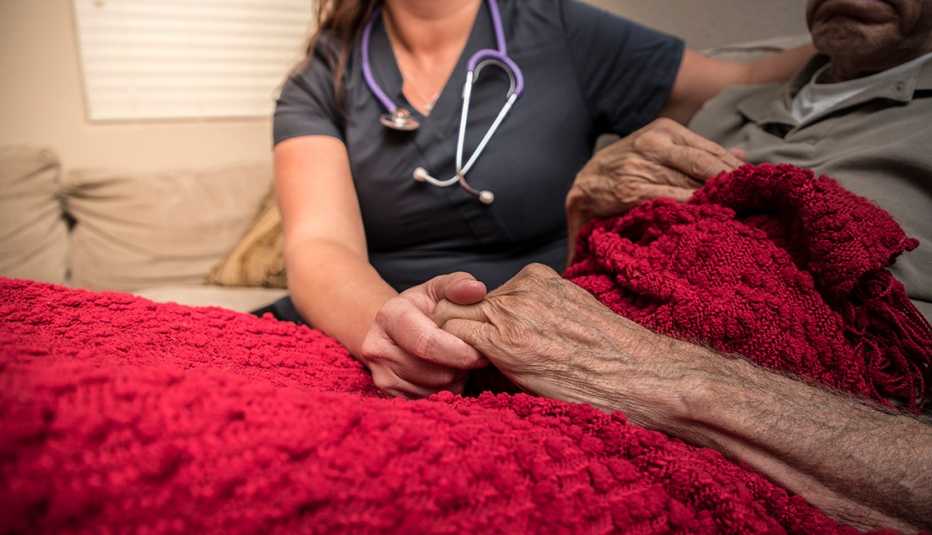Staying Fit
Hospice care, which strives to relieve the symptoms and suffering caused by a terminal illness, becomes an option when a patient has been given six months or less to live. And that means that choosing a hospice for yourself or a loved one is often a choice made under duress.
A doctor may have just shared the bad news of a family member's prognosis while complications of the illness are multiplying and the hospital — unable to offer any further treatment — is asking for a plan for discharge.


AARP Membership— $12 for your first year when you sign up for Automatic Renewal
Get instant access to members-only products and hundreds of discounts, a free second membership, and a subscription to AARP the Magazine.
Martha Twaddle, a hospice physician for 28 years until becoming head of Palliative Medicine & Supportive Care at Northwestern Medicine-Lake Forest Hospital three years ago, says that she never leads with a referral to hospice when she has end-of-life conversations with her patients.
"I say: Let's talk about what's most important to you at this time. What do you know about your condition? What are you hoping for? What is meaningful to you?” After that, she says, “We'll talk about which resources we can tap into — such as hospice care — that will help with the problems we have identified.”
Like hospice, palliative care of the type Twaddle practices at her hospital, aims to relieve suffering and empower patients. But it is intended for any patient with a serious illness and doesn't require a terminal prognosis to qualify. Hospice, which does, is a more intensive service for when an illness has advanced.
Hospice care in America is most commonly provided in the patient's home — or in a long-term care facility where the patient already lives — with the hospice team visiting regularly and as needed. Some hospice agencies have developed hospice units or hospice houses for patients who can't remain in their own homes, but the majority of hospices aren't able to offer this alternative setting. If your loved one needs this service, that would influence your choice.
"The ultimate goal for hospice care is to take in the patient and family, hold their hand, and provide all the care they need,” says Jennifer Kennedy, senior director, regulatory and quality, for the National Hospice and Palliative Care Organization. That includes leaving the family with a belief that they did right for their loved one. “We only have one shot to get it right,” she says.


































































